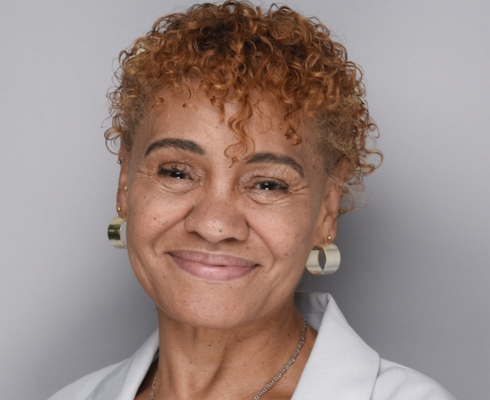
Our Commitment to Inclusion
Wesgreen International School is proud to be a fully inclusive learning community where every student is valued, respected, and supported to reach their potential. We believe that inclusion is not a separate part of education but the foundation of everything we do. Our approach ensures that Students of Determination (SEND) are educated alongside their peers, experience a genuine sense of belonging, and access high-quality learning opportunities in every subject.
The school’s Inclusion Policy sets out our shared responsibility to provide a learning environment that promotes dignity, independence, and achievement for all. Our staff work collaboratively with families, external professionals, and the wider community to ensure that every learner feels seen, supported, and celebrated. Diversity is viewed as a strength, and our inclusive culture is reflected in classroom practice, curriculum design, and whole-school decision-making.
Our mission is to remove barriers to learning by using evidence-based strategies, continuous staff training, and strong communication between all stakeholders. We aim to nurture confident, independent learners who are prepared for life beyond school, equipped with the skills to contribute positively to society.
The Graduated Response
Our provision follows a clear, structured model based on the Assess–Plan–Do–Review (APDR) cycle, ensuring that support is personalised, measurable, and regularly evaluated. This graduated response allows teachers and inclusion specialists to identify needs early and adapt interventions in line with student progress.
Level 1 – Quality First Teaching
The foundation of our inclusive practice is high-quality teaching within the classroom. Teachers plan differentiated lessons that take into account individual learning styles, ability levels, and personal circumstances. Scaffolding, visual supports, modelling, and formative assessment are used to help all learners access the same curriculum objectives. Teachers receive ongoing professional development in inclusive strategies and use data to track academic and personal progress. Students at this level are supported through classroom differentiation and monitored closely by their teachers and Heads of Year.
Level 2 – Additional Support
Some students require short-term targets set by the class teacher and supported by the Inclusion Team in addition to classroom differentiation. This may include small-group or one-to-one interventions focusing on literacy, numeracy, speech and language, or emotional regulation within the classroom. Teachers, parents, and the Inclusion Team meet regularly to review progress and adjust support. Strategies are designed to accelerate progress so that students can return to full independence within the classroom.
Level 3 – Specialist Support
Where pupils have more complex or long-term needs, individualised support is provided through an Individual Education Plan (IEP) or Education, Health and Care Plan (EHCP), in line with the SEND Code of Practice. Support may include Learning Support Assistants (LSAs), input from external specialists (e.g. educational psychologists, speech and language therapists, occupational therapists), and ongoing collaboration with parents.
Each IEP sets clear outcomes with input from parents, teachers, and external professionals to ensure that provision remains appropriate and effective. These are reviewed at least three times per year. The Inclusion Team ensures that support remains appropriate and proportionate to the child’s evolving needs.
Identification and Assessment of SEND
We identify SEND needs early through a combination of teacher observation, assessment data, standardised testing, and parental input. The four broad areas of need defined in the SEND Code of Practice guide identification and provision:
- Communication and Interaction – including speech and language difficulties and autism spectrum conditions.
- Cognition and Learning – including specific learning difficulties such as dyslexia or dyscalculia.
- Social, Emotional and Mental Health – including anxiety, ADHD, or behavioural regulation difficulties.
- Sensory and/or Physical Needs – including visual, hearing, or mobility impairments.
Assessment information is used to create individualised strategies, recorded through the graduated response. Regular reviews ensure that support remains effective and responsive to each child’s needs.
How the Curriculum is Adapted
Our curriculum is designed to be flexible and responsive to the diverse needs of our learners. Teachers plan lessons that provide multiple routes to understanding, ensuring that every student can access core learning objectives. Adaptations may include:
- Use of scaffolding techniques such as sentence starters, writing frames, and visual prompts.
- Differentiated tasks that allow students to work towards shared learning goals at different levels of complexity.
- Visual aids, manipulatives, and assistive technology to enhance comprehension.
- Modified learning materials such as simplified texts, large print, or recorded instructions.
- Structured movement or sensory breaks during lessons.
Teachers meet regularly with the Inclusion Team to review classroom strategies and share best practice. Lesson observations, data tracking, and student and parent feedback help to ensure that adaptations remain effective and meaningful.
Exam Access Arrangements
Wesgreen International School is committed to ensuring that assessments are fair and accessible to all students. Access arrangements are available to students who present a verified psychological or medical diagnosis, in line with the guidelines of the Joint Council for Qualifications (JCQ) and the Sharjah Private Education Authority (SPEA).
Arrangements may include:
- Extra time or supervised rest breaks during exams.
- A reader, scribe, or use of assistive technology.
- Adapted exam papers such as large print or coloured overlays.
- Access to a separate, quiet room for assessments.
- Adjusted timetables or extended deadlines for coursework.
All access arrangements are evidence-based and must be supported by recent documentation from a licensed professional. The Inclusion Lead reviews all cases annually, coordinating with the Examination Officer, classroom teachers, and parents to ensure consistency and confidentiality.
Transition Support
Transition between key stages is carefully planned. The Inclusion Team liaises with parents, previous schools, and external professionals to ensure continuity of provision. Transition passports summarise each pupil’s needs, strategies, and successful approaches to learning.
Working in Partnership with Parents and Carers
We believe that effective inclusion depends on strong partnerships between school and home. Parents are active participants in the planning and review of their child’s support, and their insights are valued at every stage of the process.
Our Parent Support Group meets regularly to provide information, training, and guidance from specialists such as speech therapists, psychologists, and occupational therapists. These sessions create a safe and collaborative space for parents to ask questions, share experiences, and develop strategies to support learning at home.
Parents are also invited to attend termly IEP and progress review meetings, where targets and strategies are evaluated and updated. Communication between home and school remains ongoing through regular emails, phone calls, and in-person meetings. Translation support is available for families who speak languages other than English, ensuring that all communication remains accessible and transparent.
Monitoring and Reviewing Progress
Progress for Students of Determination is tracked using a combination of academic data, teacher observations, and qualitative measures such as confidence and engagement. The Assess–Plan–Do–Review model ensures that goals are meaningful and measurable.
Progress is reviewed through:
- Termly IEP and APDR meetings.
- Standardised assessments such as CAT4, PTE, and YARC.
- Classroom-based evidence and student work portfolios.
- Student self-assessment and voice surveys.
- Regular parent meetings to share progress and next steps.
The Inclusion Team works closely with teachers to evaluate the impact of interventions and to adjust provision accordingly. Every review is an opportunity to celebrate achievement and identify the next steps for growth.
Contact Information
If you have any questions or concerns about SEND provision, please contact:
Head of Student Support – Roxanne Wolmarans – [email protected]
Primary Inclusion Lead – Claudette Mary Stoffberg - [email protected]
Secondary Inclusion Lead – Rachel Long – [email protected]
For more information, the full WGP Inclusion Policy can be found here.









